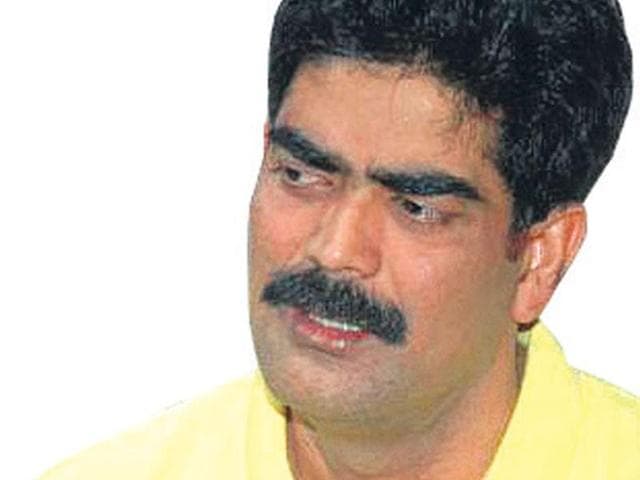There are criminals, there are politicians, and then there are those who embody the worst of both worlds—Mohammad Shahabuddin was that grotesque blend. His name didn’t stand for leadership, service, or progress. It stood for bloodshed, fear, and the collapse of law and order. Bihar, a state already grappling with poverty and corruption, found itself suffocated under the ruthless reign of a man who made murder look like business as usual. This is not a tale of a fallen hero—it is a reminder of how deeply crime can poison politics when institutions turn cowardly and democracy bows to muscle power.
The Face of Lawlessness in Siwan
Shahabuddin didn’t rise through merit, vision, or public welfare—he clawed his way up through violence, fear-mongering, and ruthless elimination of his opponents. Siwan, once just another district in Bihar, became synonymous with terror during his regime. His presence didn’t improve people’s lives—it paralyzed them.
Businesses shut early. People feared walking out at night. Dissenters went missing. Journalists were attacked. Even the police, the supposed guardians of law, took orders from him or looked the other way. This wasn’t governance; it was dictatorship under the guise of democracy.
A Long List of Crimes and a Longer Trail of Victims
Over 40 criminal cases were registered against Shahabuddin. But those are just the ones that were officially recorded—countless victims never dared to report what they suffered. His crimes weren’t petty thefts or minor scuffles; they were brutal, calculated acts of violence. Murders, kidnappings, extortion, acid attacks—this was his legacy.
The acid murder of two brothers who dared to defy him remains one of the most horrifying chapters. Their charred remains were not just a testimony of his cruelty but also of a society that had given up hope. When the lone eyewitness in that case—also their brother—stood up to testify, he too was murdered. This wasn’t a coincidence. This was Shahabuddin’s modus operandi: erase opposition by erasing people.
A Criminal in the Disguise of a Politician
Politics didn’t clean him up; it gave him armor. It gave him legitimacy, a platform, and worst of all—protection. How does a man with dozens of heinous cases get elected to Parliament four times? Not because of public admiration, but because of the climate of fear he engineered.
His political party didn’t oust him—they embraced him. They gave him importance. He wasn’t seen as a liability, but as a “strongman” who could deliver votes. What they failed to realize—or perhaps didn’t care about—was that the votes he “delivered” came drenched in the blood of those too afraid to oppose him.
Siwan Turned into a Private Kingdom
During Shahabuddin’s rule, Siwan wasn’t a district—it was his private kingdom. Every institution was under his thumb. Government offices operated according to his whims. Even election booths turned into war zones where free voting was a myth.
Local opponents were either silenced or “handled.” Speaking against Shahabuddin meant risking your life. Even common people didn’t whisper his name after sunset. What kind of democracy allows one man to hold an entire district hostage for decades?
The Judiciary Took Too Long
Justice delayed is justice denied—and in the case of Shahabuddin, justice wasn’t just delayed, it was almost mocked. For years, despite strong evidence and public outcry, he continued to roam free, contest elections, and give public statements. He was convicted in multiple cases but always managed to manipulate the system, influence witnesses, and delay hearings.
It took enormous public pressure and media coverage for the system to finally act. And even then, his imprisonment didn’t mean the end of his influence. He continued to call the shots from behind bars, proving how deep his roots ran in the political-criminal nexus.
The So-Called “Robin Hood” Image – A Disgusting Lie
Some tried to portray him as a Robin Hood—a man who helped the poor and stood up for his people. That’s not just misleading, it’s dangerous. Giving handouts to a few while terrorizing an entire population does not make one a hero. It makes them a tyrant in disguise.
Feeding the poor with one hand and burning people alive with the other is not welfare—it’s cruelty wrapped in manipulation. His supporters, whether out of fear or loyalty, helped build this false image. But the scars of the families he destroyed tell the real story.
His Death – Too Late for Justice, Too Soon for Peace
Shahabuddin died in 2021 due to COVID-19 complications while in Tihar Jail. Many said justice had finally been served. But for the countless families who lost sons, daughters, and livelihoods to his reign of terror, his death didn’t bring closure. It brought back memories—of unanswered cries, of sleepless nights, of a system that failed them for years.
He escaped the kind of punishment many believe he truly deserved. No amount of imprisonment or death can undo the pain he caused.
Conclusion: Never Glorify a Monster
Mohammad Shahabuddin was not a leader, not a public servant, not a misunderstood rebel. He was a criminal who hijacked the political system and turned democracy into a tool for destruction. The fact that he rose to power, ruled with violence, and stayed untouchable for so long is a damning indictment of our institutions.
His story should never be glorified. It should be studied, condemned, and remembered as a warning. So that we, as a society, never again allow fear to wear the mask of leadership.
We owe it to every victim to say the truth out loud: Mohammad Shahabuddin was not a hero—he was a nightmare that Bihar should never forget.



